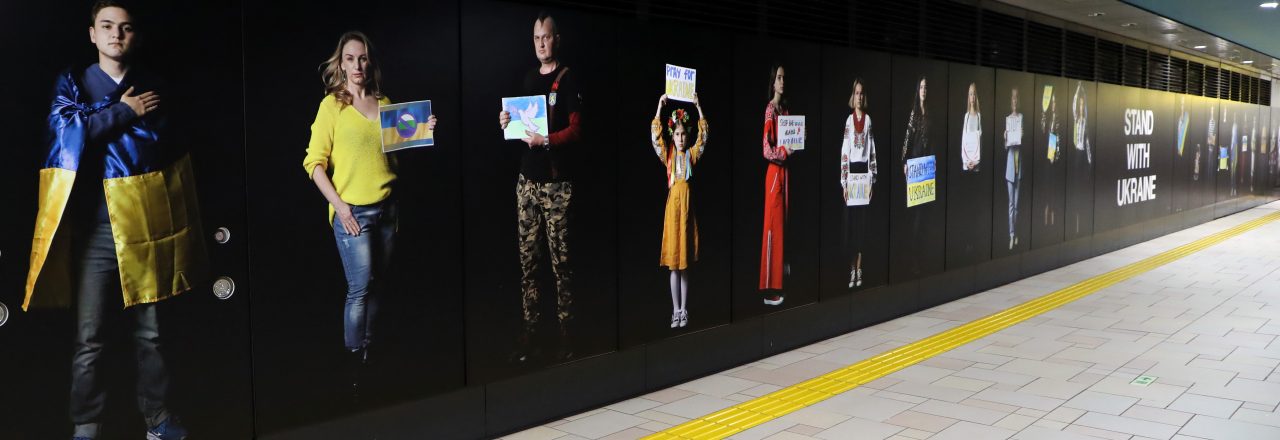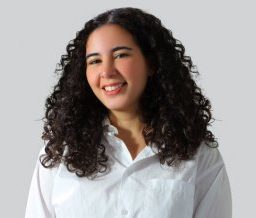
Abstract
Following Russia’s invasion of Ukraine, approximately 6.5 million persons became internally displaced and over 4 million fled to neighbouring countries, predominantly to Poland. Given the country’s lack of experience in welcoming such a large number of refugees, the present article proposes a set of policy recommendations drawing from the experience of Jordan – a country that is host to around 3 million refugees (nearly half of them Syrian). Lessons learnt regarding provision of housing, financial support, and public services as well as access to the labour market were drawn and translated for use in the Polish context. Additionally, public discourse and public opinion trends were analysed as well.
Introduction
Following Russia’s invasion of Ukraine, approximately 6.5 million persons became internally displaced and over 4 million fled to neighbouring countries. Among the latter, the majority (as of the end of March 2022, nearly 2.4 million) crossed the Polish border. While a humanitarian crisis of this scale has not been witnessed in Europe since World War II, sadly the same cannot be said about other regions of the world. In particular, as a result of the internationalised civil war in Syria – presently entering its twelfth year – more than half of the country’s pre-war population of over 21 million were forced to flee their homes. Today, an estimated 1.3 million of the 21 million refugees have sought refuge in Jordan.
Admittedly, the situation in Jordan and Poland differs on many accounts. For instance, due to the fact that fighting-age men are prohibited from leaving Ukraine, women and children constitute the vast majority of Ukrainians in Poland – unlike in Jordan, where one in four Syrians are men.[1] Additionally, Jordan continues to be the second largest host country of refugees per capita in the world. Moreover, Poland, the European Union’s sixth largest economy, has significantly more resources (financial and otherwise) to deal with the humanitarian crisis than Jordan. At the same time, many parallels can be drawn between the situation in the two countries, including the short period within which both had to prepare themselves for hosting large numbers of those fleeing the war, or the cultural closeness between Polish and Ukrainian as well as Jordanian and Syrian societies.
Against this background, the present piece aims at gathering lessons learnt and best practices from Jordan and translating them into policy recommendations that can be of help to Polish authorities while designing reception policies – both in the short and long term.
Designing an efficient and effective support system
One of the main challenges for host countries is securing daily sustenance for the refugee population. Typically, refugee camps are built to provide shelter and delivery of basic services. However, in Jordan, 80% of Syrians registered with the United Nations High Commissioner for Refugees (UNHCR) live outside of refugee camps (proportions for those unregistered are likely even higher). In Poland no refugee camps have been created (and, according to the government, there are no plans to establish them at any point in the future). Governments and international organisations are therefore facing a question of how to assist the refugees in finding housing and maintaining themselves in the most efficient and effective way.
Labour market dilemmas
In the medium and long term, the most sustainable solution is to allow the refugees to make their own living. Jordan, however, having faced persistently high unemployment rates among its own population, has heavily restricted access to its labour market[2]. Prior to the introduction of the Jordan Compact in 2016, refugees had to apply for the same work permits as labour migrants, a bureaucracy-heavy process which required finding an employer who would sponsor them. As a result, the majority of refugees found work in the informal market, characterised by low-wages, prolonged working hours and general lack of protection of the Jordanian Labour Code. The introduction of the Jordan Compact improved the situation to an extent, with the removal of work permit fees and extension of the list of jobs that Syrians were permitted to perform (the list was further expanded amid the Covid-19 pandemic to include, e.g., healthcare professionals). However, despite the 62,000 work permits issued to Syrians in 2021, the unemployment rate among the Syrians is still believed to be double that of the Jordanians. Moreover, informality is still prevalent, with only approximately 25% among those who possess a valid work permit having a written employment contract and 18% being covered by social security. Moreover, Syrians are not allowed to own a business unless they invest or are able to provide a capital of approximately €63.7 thousand – compared to €1,276 in the case of Jordanians.[3] The exception to that rule are home-based businesses of individual entrepreneurs, mostly geared at women wishing to work from home, however multiple restrictions regarding e.g. size of the “home office” prevent many from pursuing this solution.
In light of the Jordanian experience, Poland’s decision to grant all Ukrainians (as well as their spouses) unlimited access to the Polish labour market and a right to run businesses on the same terms as Polish citizens was an adequate one. Nevertheless, as it can be seen in the Jordanian example, even the refugees with a legal right to work can find it difficult to have their rights fully respected in the labour market. Indeed, even before the outbreak of the war, reports of migrant workers being abused and their rights not respected were emerging in Poland. The early data shows that among 21,000 Ukrainians who started work in the country between 24 February and 30 March, three quarters signed civil law contracts and not job contracts, which grants them fewer rights and benefits but has the advantage of a lower level of taxes applied and more flexibility. The number of those working without any contract (and below the official minimum wage) is not known.
Financing daily needs
Those refugees who for various reasons are not able to find work and cannot financially maintain themselves, must rely on assistance from charities and international aid organisations, as well as governments.
In Jordan, continued assistance is provided both to refugees living inside the camps and in urban areas by the UNHCR and the United Nations Children’s Fund (UNICEF), with time-limited or one-off support delivered by a number of non-governmental organizations (NGOs), international non-governmental organizations (INGOs), charities and public institutions. Overall, UNHCR estimates that approximately half of Syrians living in urban areas are reliant on cash assistance programmes and vouchers to help them meet their essential needs. Depending on a given family’s situation, UNHCR’s cash assistance ranges from approximately €68 euros to €362 a month. Moreover, UNICEF provides cash transfers of approximately €25 a month per child to the most vulnerable families. Food vouchers are distributed by, among other actors, the World Food Programme,[4] whereby refugees receive a credit card that is topped up on a monthly basis and can be used at certain stores to buy products from a pre-approved list. Alternatively, cards can also be used as cash assistance, where refugees can withdraw money from Automated Teller Machines (ATMs) to use the money freely.
Studies conducted in Jordan (and elsewhere) show that the latter method had a stronger or at least equal positive effect on food security among the refugees[5]. Importantly, not restricting the number of places where food could be bought increased the purchasing power of the refugees by 15-20%. Cash assistance was also a generally preferred form of assistance among the refugees due to the above-mentioned higher purchasing power, larger flexibility, as well as feeling of empowerment. It was also found to be more cost-effective and has the same impact on the local economy as the voucher scheme.
Given the above-mentioned findings, the decision to provide Ukrainian refugees in Poland with cash assistance should be endorsed. However, the extent of this help must be carefully considered. In Jordan, despite various assistance schemes, the number of Syrian refugees in debt increased by 25% between 2018 and 2021, with money typically borrowed informally from family and friends to pay the rent, cover healthcare-related expenses, and purchase food. In Poland, the money provided by the government as of now – a one-off assistance of PLN 300 (approximately €63) in cash plus family benefits normally available for Polish citizens[6] – will not be enough to cover all the basic needs. Additional support offered by the UNHCR is only available for a period of minimum three months.
Public education
Jordan provides primary public education to refugees who present a UNHCR/Ministry of Interior card. However, due to the large influx of refugees many public schools struggled to integrate an additional 200,000 students into their classes. Therefore, many schools introduced double shifts whereby Jordanian students attend school in the morning and refugee children attend in the afternoon. Unfortunately, the quality of teaching in the afternoon classes is lower than during the first shifts, and the drop-out rates among Syrian children remain high. Teachers attending to Syrian children are fresh graduates with little to no experience in teaching. In 2016, pre-school education became mandatory, however there are not enough schools to welcome Jordanian let alone Syrian students. Organisations like Save the Children have been stepping in with programmes such as the Early Childhood Development to prepare children for primary school but the needs are much higher than the number of places available.
The issue of lack of capacity of schools and preschools to accommodate refugee children is very much pertinent to Poland. Introduction of double shifts following the Jordanian example might be a good idea, however in order to ensure equal opportunities being offered to both populations, it might be better to create mixed groups whenever possible. In cases where language is an issue, especially with older children, it may be more beneficial for them to first spend some months in language immersion classes and only return to regular programmes with Polish students at a later stage. Access to pre-schools and other forms of childcare is extremely important also in order to allow Ukrainian women to join the workforce.
Healthcare
Refugees registered with the UNHCR in Jordan have access to primary, secondary and tertiary healthcare services at the non-insured Jordanian rate in public hospitals and clinics. Moreover, the UNHCR provides free healthcare services to all vulnerable refugees. Tertiary healthcare is additionally provided through Caritas clinics pending approval from the UNHCR’s Exceptional Care Committee. The refugees that are not registered with the UNHCR (approximately 50%) have to rely on public healthcare. At the beginning of the humanitarian crisis, public primary healthcare was free of charge, but as of 2014 non-insured Jordanian rates were introduced due to the strain on the public budget that the original arrangement caused. Those refugees who are not registered anywhere and do not possess the security card must pay the full rate applicable to foreigners.
In the meantime, the price of services increased significantly due to the government not being able to shoulder the burden of providing healthcare to growing Jordanian and refugee populations (for instance, the price of giving birth in a public hospital went up from €77 up to €306 between 2013 and 2018). As a result, healthcare expenses are the second most often quoted reason for incurring debt by the Syrian refugees in Jordan (and the third most important for the non-Syrians surveyed).
This is an important cautionary tale for Poland, whose healthcare system is already highly dysfunctional and who granted Ukrainian refugees’ free access to all healthcare services in the country.
Shaping the optics
The Jordanian government has from the beginning referred to Syrian refugees as “guests” and “our brothers and sisters” and the Syrian refugees referred to themselves as “King Abdullah’s guests”.
Long-term hosting of a large refugee population will invariably put a strain on the host populations. Among the issues raised by the Jordanian population is unequal distribution of aid between the refugees and host population – this has been an issue predominantly in areas with high poverty rates – as well as rising rental prices and stress on already overburdened public services. At the same time, ten years after the outbreak of the conflict, 92% of Jordanians reported being very or somewhat sympathetic towards Syrian refugees – even though at the same time approximately two thirds think that refugees “receive more support” and that “too much money” is spent on them. Arguably, one of the reasons for this is the generally positive approach of the political classes towards the refugees. From the beginning, Syrians were referred to as “guests” and “brothers and sisters”[7], terms used to underline hospitality in a country that prides itself on responding to the “Arab” and “Islamic” duty of welcoming refugees.
Currently, the attitude towards Ukrainians in Poland is predominantly positive, both among the politicians and the general public. However, given the history of anti-migration sentiments in the country (even now, those trying to cross Polish border from Belarus – including Syrians, Yemenis, and Afghans – are being pushed back), the deteriorating economic situation, as well as the activity of Russian agents trying to stir anti-Ukrainian sentiments in Poland, there is a real danger of a mood swing. Already, concerns regarding access to kindergartens or longer waiting lines to access specialist medical care are being heard.
Policy recommendations
Poland is currently facing a challenging situation of providing assistance to a large Ukrainian population. As it has been discussed throughout the present paper, multiple lessons learnt can be drawn from the experience of Jordan which has been host to a significant refugee population for well over a decade.
It should be noted that some NGOs in Poland are already using the experience gained working with the Syrian refugees in the MENA region. For instance, the Polish Center for International Aid (PCPM) – thanks to funding from the Norwegian Refugee Council (NRC) and CARE USA – introduced a pilot Multi-Purpose Cash Assistance program for an initial group of 7,000 Ukrainian refugees. The programme is aimed to last three months, helping the Ukrainians meet their basic needs before obtaining systemic aid from the government.
The Polish authorities should follow their example and search for both inspiration and cautionary tales from their counterparts in more experienced countries. On a national level, advice on how to solve issues related to ensuring respect of the labour market code or appropriate healthcare reforms could be pursued. Local and regional authorities, to a large extent responsible for delivery of communal services, could consult their counterparts on housing and childcare policies.
Importantly, the Polish government should take good note of the vulnerability of the refugee population to deteriorating economic conditions (see deterioration of situation of Syrians across various measures between 2018 and 2021 under various indicators as showcased in the sections above). Equally, it must remain particularly aware of how carefully the public debate surrounding refugees must be shaped in order to avoid aggravating potential disagreements between the refugee and host population.
[1] As are many Iraqis, Yemenis and nationalities that found refuge in the country.
[2] Jordan is not a signatory to the 1951 Refugee Convention but has signed a memorandum of understanding with the UNHCR in 1998 which states Jordan’s commitment to treating refugees and asylum seekers in accordance with international standards and confirms their rights to education and health but not their access to the labour market. Moreover, Jordan does not have a national legal framework that sets out the rights of refugees and asylum seekers. Therefore, refugees are governed by the 1973 Residence and Foreigners’ Affairs Law which is applied to all foreign nationals in Jordan.
[3] To circumvent this capital requirement, Syrians are opting for joint ventures with Jordanians; due to red tape and multiple remaining restrictions businesses are, however, oftentimes registered in the name of the Jordanian partner, effectively depriving the Syrian side of the deal of legal protection in case of a dispute.
[4] Due to budget cuts in 2021, the WFP announced that 21,000 refugees will no longer receive cash assistance and assistance for others will be cut.
[5] See the following publications:
https://reliefweb.int/report/lebanon/food-restricted-voucher-or-unrestricted-cash-how-best-support-syrian-refugees-jordan
https://www.calpnetwork.org/wp-content/uploads/2020/01/cash-transfers-for-refugees-jordan.pdf
https://www.nrc.no/what-we-do/themes-in-the-field/cash-and-vouchers/
[6] A monthly subsidy of PLN 500 (approx. €107) per child under 18 (“Family 500+ programme), funds from “Rodzinny Kapitał Opiekuńczy” for every second and subsequent child aged 12-35 months, monthly subsidies for financing childcare, as well as PLN 300 (approx. €63) at the beginning of the school year for every child under 20.
[7] Admittedly, this term is used to imply that their presence in Jordan will be short-term (Generations for Peace, 2015).




